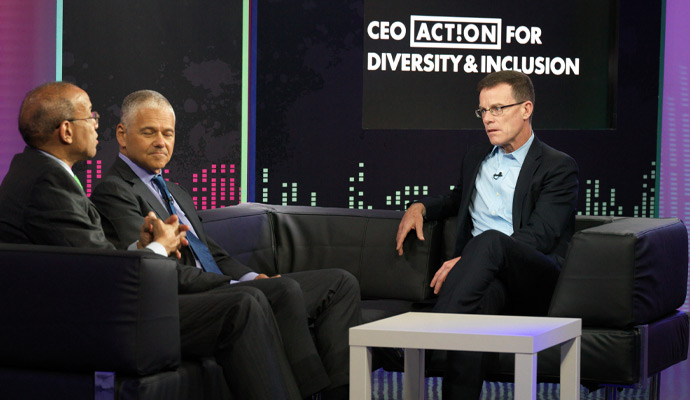What it’s really like to be a public speaker
If you’ve thought about taking your expertise out on the road, here are some things to know before setting off.
Everyone involved in business today knows that the gig economy is flourishing. Perhaps you’ve even thought about joining it — not as an Airbnb host or Uber driver, but as a public speaker. It’s a pretty sweet gig, after all. You get to travel the world and get paid to go to parties, all while sharing your passions and expertise with interesting — and interested —people. I’ve been a full-time keynote speaker for almost four years, so I have firsthand knowledge of just how awesome it is, and people often ask me what it’s like. The truth is that there are a lot of perks involved with making a career out of public speaking, but this job also requires perseverance and hustle. Be sure you know what you’re in for before giving up your corner office for life on the road.
The good part
There might be better jobs out there, but I doubt it. Think about all of the highlights in an average public speaking gig. You take an all-expenses-paid trip to a luxurious resort or hotel — often at the beach or in one of the world’s coolest cities. Usually, there is a reception the evening before the speaking event, and you’re introduced to the host organization’s leaders and event sponsors — all inevitably interesting people who open up to you about their lives. You have some fine wine and a great meal, more conversation, and then finally return to your hotel room, where there is often a welcome gift waiting for you. Unlike with consulting and many other road-warrior gigs, you don’t have to stay up late preparing materials for your talk, because you know the material cold.
The truth is that there are a lot of perks involved with making a career out of public speaking, but this job also requires perseverance and hustle. Be sure you know what you’re in for.
The next morning, when it’s your time to speak, you get a grand introduction, take the stage, and (hopefully) pull the audience deep into your stories and frameworks. As you exit stage left, the applause rings in your ears and the feeling of having made a difference lingers in your mind. Afterward, people line up to talk to you and tell you a little about themselves. Then there’s often another reception and dinner, and more people approach you all evening long to share their stories, talk about business strategies, and tell you how what you said affected them.
After collecting your hotel points, you’re whisked to the airport, you fly home (racking up airline miles), and then you return to your daily commute to your couch — because you work for yourself, and that means working wherever and however you want.
When not traveling, you’re free to nest at home, connect with friends and family, or use your points and miles to travel the world, where you meet even more new people, interview the world’s top experts to gather cutting-edge information and research, read case studies and books, and collect new stories to put into your next book or talk. Oh, and everything you do, with the exception of half your house payment and groceries, is tax deductible.
The hard part
Speaking gigs are not easy to get. It’s a very tough business. In fact, 80 percent of my gigs come from someone who saw me in person. So, in order to start speaking, you have to start speaking — and how the heck do you do that?
First of all, you have to be a rock-solid subject matter expert with real credentials, and you have to keep your knowledge up-to-date. You also have to be able to take your expertise and use storytelling skills to develop it into a great, engaging talk (or talks). And you have to have this elusive thing called presence: a combination of how you carry yourself and use body language, how you project your voice, and other intangible qualities. Without presence, no matter how great your content, you won’t get a call for another talk.
Getting the word out is your next most important job. In my experience, unless you’re famous, speaker bureaus are mostly useless. I’m listed with at least 30, but less than 5 percent of my business comes through them. Instead, you’ll have to play a networking sport full of potential rejection. It is socially exhausting. You have to work every room from the moment you arrive until you leave. You can never bow out early, and you must offer to speak privately to every sponsor or executive the organizing committee wants you to meet. You have to be “on” the whole time. And rejection abounds. Someone will see you talk and tell you how great it was and that they want to bring you to their company or event, but oftentimes you’ll never hear from them again. After back-to-back gigs, I sometimes sleep like the dead for 12 hours or more.
To properly market yourself as a speaker, you’ll also need a website (updated regularly with fresh content), maybe a semi-monthly newsletter, and possibly a customer-relationship management strategy and the software to execute it. You might even need to hire someone to help you with all of this.
Also, know that your communication trail will be never-ending. Each gig requires dozens of touch points, from your first call, to working out logistics, to payment and follow-up. Email will feel like a full-time job, even if you have help.
Oh, and have you written a book? Or two, or three? Because you really should. Books, while not necessarily a great source of direct revenue, create instant credibility.
Given the overwhelming number of touch points involved with landing a high-paying gig, and the number of dead-ends along the way, you might always feel a few steps behind on your to-do list. But if you think this is the life for you, find a TEDx event near you and pitch your idea — that’s how I got started.
The balance
Your schedule is (mostly) your own. You could coast and work a very light schedule (and likely see your speaking pipeline dry up). Or, you could work very long hours for weeks or months on end (and miss the opportunities that being your own boss provides). The good news is that it’s your choice to figure out how you want to balance your time. There are natural off-peak periods around major holidays and at other times, so you can plan travel or time away from work to coincide with those dates. Or, if you want to up and go to Jamaica for the weekend, you can do that, too. Bookings can be erratic and unpredictable — feast or famine. If you can’t handle this kind of uncertainty, this may not be for you. However, once you build the snowball, it can gain momentum. For the past couple of years, I’ve had north of 60 paid gigs a year, and I do my share of complimentary keynotes, too, for nonprofits, schools, and other institutions.
Time isn’t the only thing you’ll need to balance. The people who loved your talk are usually the only ones who approach you to offer feedback. And if that’s the only feedback you listen to, your ego and hubris can explode. To hone your craft (and keep your ego in check), you’ll need to regularly solicit constructive feedback.
So, should you be a keynote speaker? I think the answer is yes (unless you don’t like leaving home). Public speaking offers an amazing lifestyle with freedom and perks that few other jobs provide. If you feel the urge to share your story, have great presence, and are a great storyteller, and if you have deep expertise in something useful to a business, then public speaking could be your next career path.






